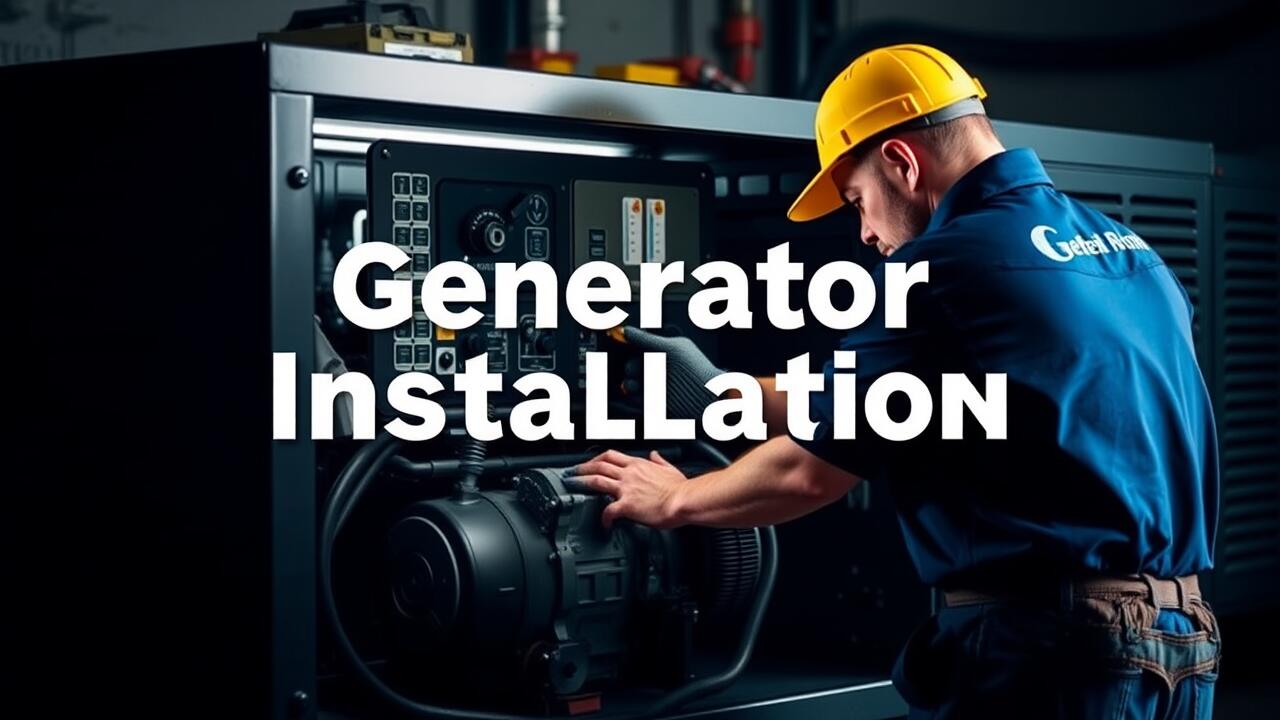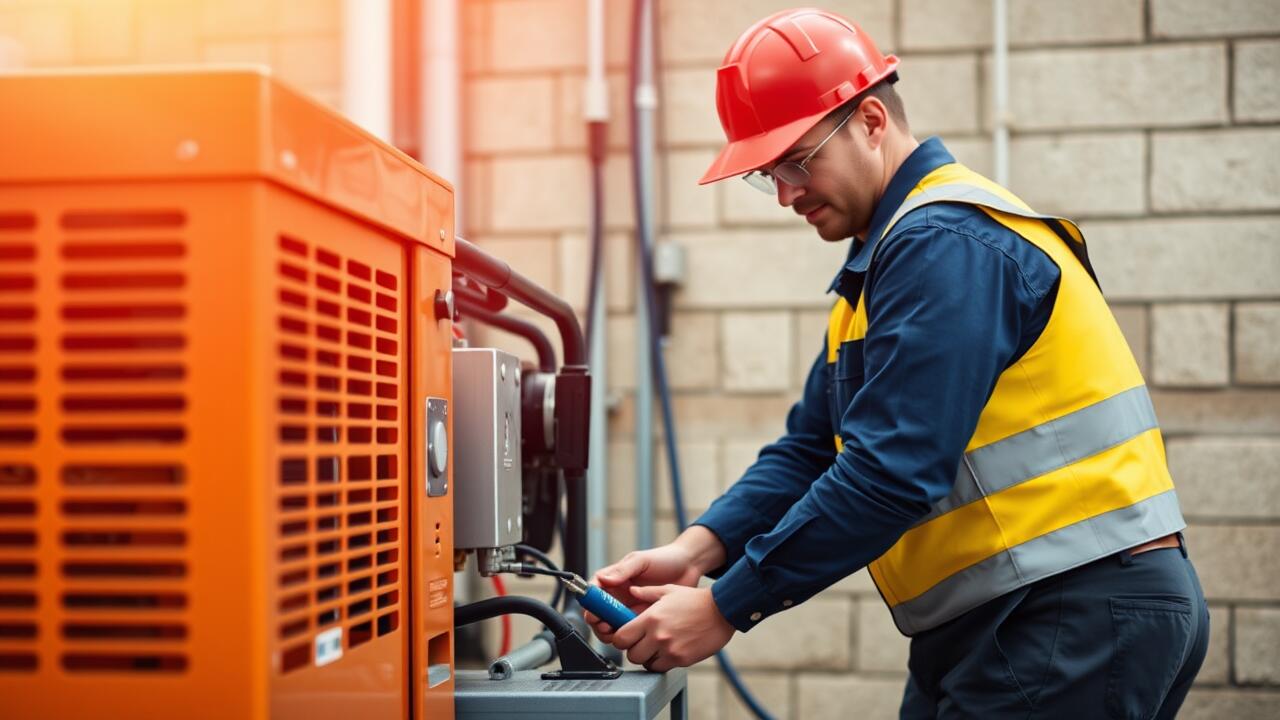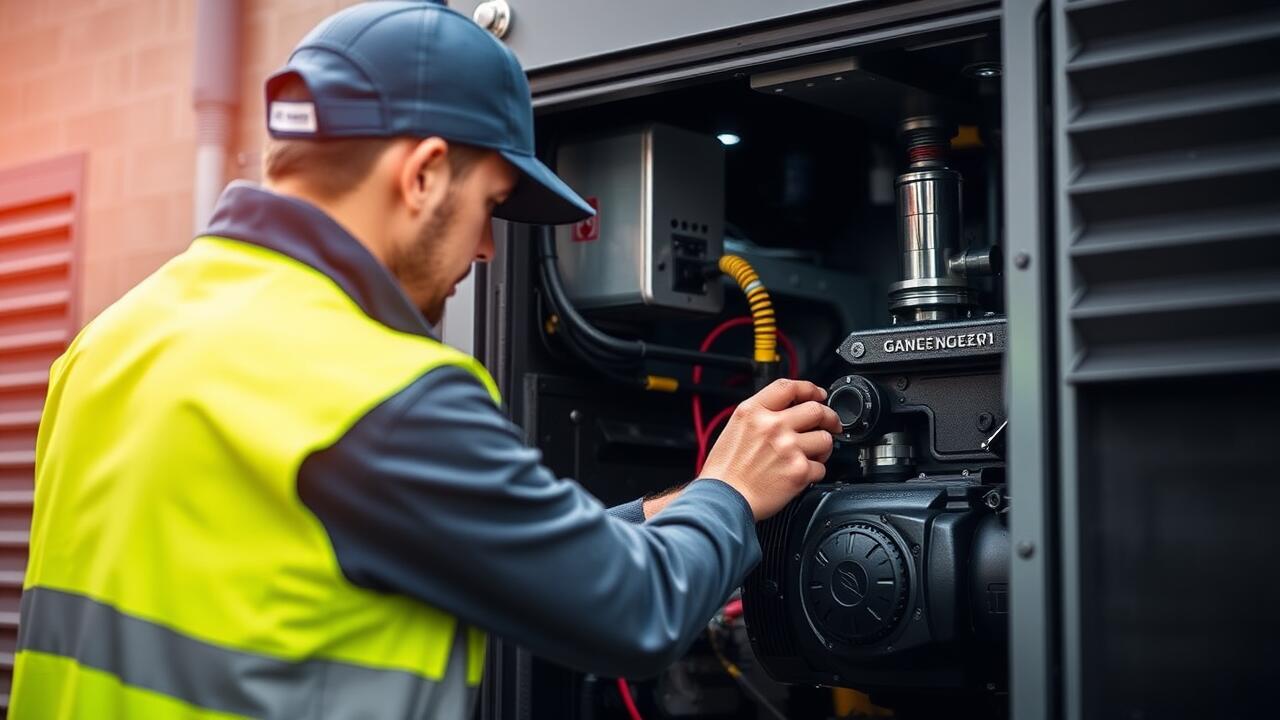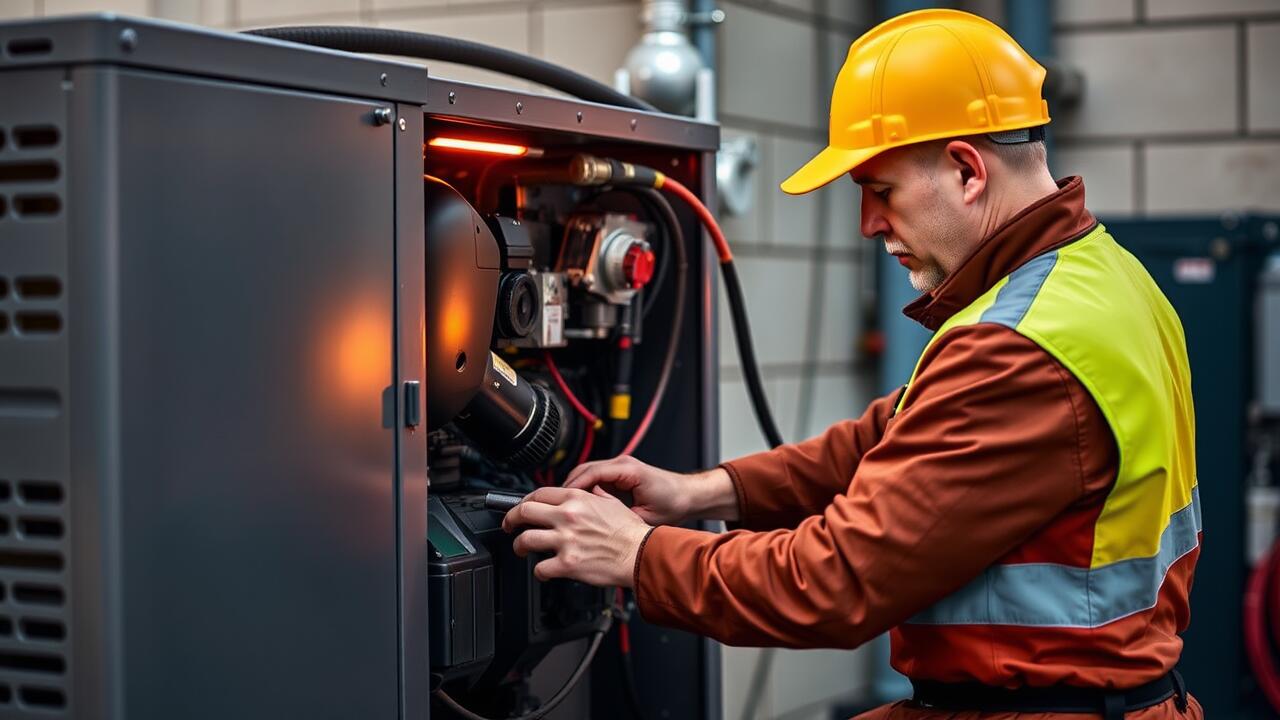
Powering Different Rooms in Your House
Understanding the wattage requirements for different rooms in your house is crucial for efficient energy management. Each space typically demands varying amounts of electricity based on the appliances and devices used. For instance, kitchens often require higher wattage due to refrigerators, ovens, and microwaves running simultaneously. Bedrooms, on the other hand, may need less energy, primarily supporting lighting and smaller electronics like alarm clocks and phone chargers.
When considering your energy needs, it’s essential to account for potential power outages. In areas prone to such disruptions, looking into Generator Installation in Gulfton, Houston, can provide a reliable backup power source. By ensuring that your home's energy capacities are well understood, you can make informed decisions about your power supply and how to best meet the demands of each room while maintaining efficiency.
Wattage Requirements by Room Type
Understanding wattage requirements for different rooms in your home can help you manage energy consumption and ensure adequate power supply. The kitchen typically demands the highest wattage due to appliances like refrigerators, ovens, and microwaves. A standard kitchen might consume around 2,000 to 5,000 watts, depending on the number and types of devices used. Living rooms generally require less energy, averaging between 500 to 1,500 watts, primarily for lighting, televisions, and other electronics.
Bedrooms usually consume around 300 to 1,000 watts, depending on the lighting and electronic devices present. The bathroom, with its essential lighting and small appliances like hair dryers, may require approximately 300 to 800 watts. For homes where power interruptions may occur, considering options like Generator Installation in Gulfton, Houston, can be beneficial. This provides a reliable backup power source to ensure that essential areas remain operational during outages.
The Role of Renewable Energy Sources
Renewable energy sources play a significant role in reducing a household's dependence on traditional electricity grids. Utilizing solar panels has become an increasingly popular option for residential properties, allowing homeowners to produce clean energy while lowering utility bills. Wind energy, though less common in urban settings, can also supplement a home’s power supply when feasible. Alongside these resources, battery storage systems enhance energy efficiency by storing excess energy generated during peak sunlight hours for use during periods of high demand.
For homeowners considering integration of renewable energy, contacting professionals for Generator Installation in West University Place, Houston, can streamline the process significantly. These installations not only provide backup power but can also contribute to a more sustainable energy model. By combining traditional systems with solar or wind energy solutions, families can achieve a more balanced and resilient energy strategy while benefiting from ongoing advancements in renewable technology.
Solar Power Options for Residential Use
Solar power has become an increasingly popular choice for homeowners seeking to reduce their reliance on traditional energy sources. Homeowners can harness solar energy through photovoltaic (PV) panels, which convert sunlight into electricity. This technology offers a renewable energy solution capable of significantly lowering monthly utility bills. As the efficiency of solar panels continues to improve, many homeowners are finding it an attractive investment with long-term savings.
For those considering taking the leap into solar energy, it's important to think about installation options. Professional services, such as Generator Installation in Gulfton, Houston, provide homeowners with expert advice and installation support. By working with local professionals, residents can ensure that their solar setups are customized to their energy needs while adhering to regional regulations. The growing number of solar incentives and financing options further enhances the accessibility of solar power for homeowners.
Home Energy Audits
Home energy audits serve as an essential step for homeowners looking to improve energy efficiency. These audits assess various aspects of a home, including insulation, heating, cooling systems, and appliances. Identifying areas of energy waste can lead to significant savings on utility bills and enhance overall comfort. Home energy auditors use specialized equipment to measure energy consumption and pinpoint problem areas that may require upgrades or adjustments.
Considering generator installation in Gulfton, Houston can further enhance a home's energy reliability. A generator can provide a backup power source during outages, ensuring that essential systems remain operational. Combining the insights from a home energy audit with the installation of a generator also helps homeowners create a more resilient and efficient energy plan, allowing for both immediate and long-term benefits.
Why You Should Consider an Energy Audit
Energy audits play a crucial role in identifying areas where your home can improve energy efficiency. By assessing insulation levels, appliance usage, and overall energy consumption, homeowners can pinpoint wasteful habits or outdated systems. These audits not only help in understanding current energy usage but also pave the way for structured improvements that can lead to significant cost savings in utility bills.
Conducting an energy audit can also highlight whether your home could benefit from renewable energy sources, such as solar panels. As homes increasingly seek sustainable options, implementing suggestions from an audit can enhance energy independence. Additionally, considering professional services like generator installation in Gulfton, Houston, can further ensure your home runs efficiently even during power outages, providing peace of mind and comfort.
FAQS
How many watts does an average house typically use?
An average house typically uses between 5,000 to 10,000 watts of power, depending on size, appliances, and energy efficiency.
What factors influence the wattage needed to run a house?
Factors include the size of the house, the number and type of appliances, lighting choices, heating and cooling systems, and overall energy efficiency.
Can renewable energy sources reduce the wattage needed from the grid?
Yes, renewable energy sources like solar panels can significantly reduce the wattage needed from the grid by generating electricity for your home.
How can I determine the wattage requirements for different rooms in my house?
You can determine wattage requirements by listing all appliances and devices in each room, checking their wattage ratings, and summing them up.
What is a home energy audit and why is it important?
A home energy audit is an assessment of your home's energy use, identifying areas where you can improve efficiency. It’s important because it helps reduce energy consumption and costs.


